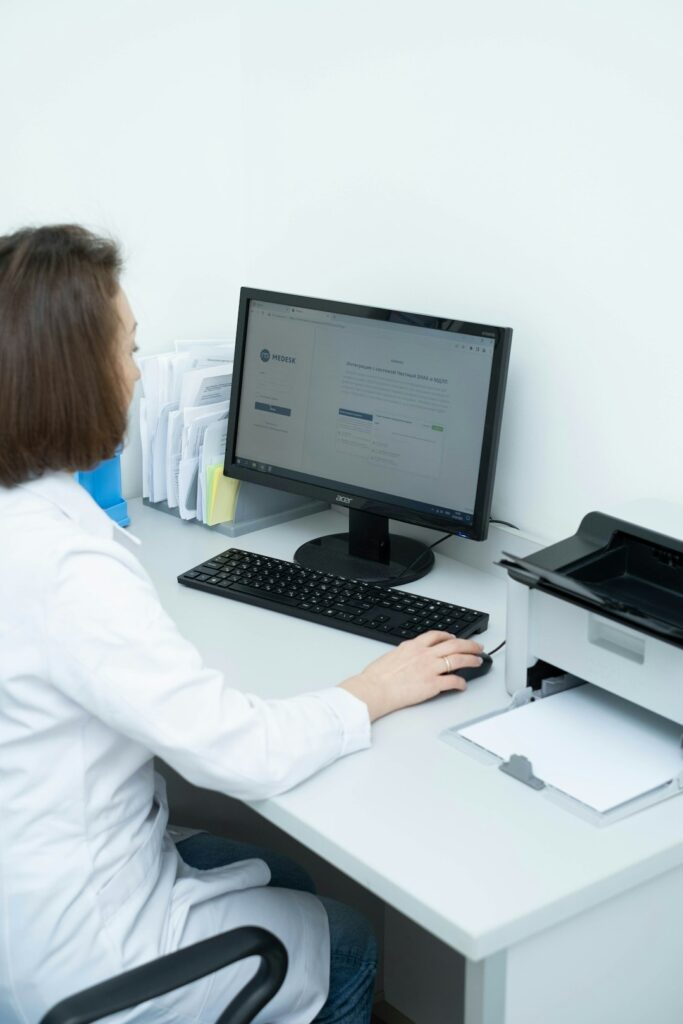AI Tools for Healthcare: Revolutionizing Medical Diagnosis with AI Medical Diagnosis Software
The healthcare industry is on the brink of a significant transformation, primarily due to advancements in artificial intelligence (AI) technologies. AI medical diagnosis software has emerged as a crucial tool, enabling healthcare professionals to enhance accuracy in diagnosing diseases, streamline workflows, and improve patient outcomes. In this article, we delve into the various AI tools available for healthcare and how they are reshaping medical diagnosis.
Understanding AI Medical Diagnosis Software
AI medical diagnosis software leverages machine learning algorithms, data analytics, and natural language processing to interpret medical data and assist in decision making. This technology helps physicians identify patterns and anomalies that may not be visible to the human eye, ultimately enabling more accurate diagnoses.
Key Features of AI Medical Diagnosis Software
- Data Analysis: The software analyzes vast amounts of patient data, including medical histories, laboratory results, and imaging data.
- Predictive Analytics: It uses predictive models to foresee potential complications and suggest preventive measures.
- Real-Time Assistance: AI tools provide recommendations in real-time, allowing for timely interventions.
- Continuous Learning: These systems continuously learn from new data, improving their accuracy over time.
Popular AI Tools in Healthcare
Several AI tools are transforming the landscape of healthcare, each with unique capabilities that enhance medical diagnosis.
1. IBM Watson Health
IBM Watson Health is known for its robust AI capabilities, particularly in oncology. It analyzes medical literature, clinical trial data, and patient records to assist oncologists in developing personalized treatment plans.
2. Google’s DeepMind
Google’s DeepMind Health has demonstrated remarkable success in analyzing eye scans to identify signs of diseases like diabetic retinopathy and age-related macular degeneration, offering healthcare professionals valuable insights.
3. Aidoc
Aidoc’s AI-powered radiology solutions help radiologists quickly identify critical conditions in medical images, enhancing diagnosis speed and accuracy in emergency settings.
The Impact on Patient Care
AI medical diagnosis software is not just about improving diagnosis accuracy; it has a profound impact on overall patient care. By enabling faster and more reliable diagnoses, these tools help clinicians make informed decisions, resulting in better outcomes for patients.
Enhancing Diagnostic Accuracy
One of the primary benefits of AI tools is their ability to reduce human error. Statistics show that AI systems can outperform human counterparts in specific diagnostic tasks, providing a second opinion that enhances clinical decision-making.
Streamlining Workflows
AI tools automate routine tasks such as data entry and analysis, allowing healthcare professionals to focus more on patient interaction and care. This efficiency not only improves job satisfaction among healthcare workers but also enhances the patient experience.
Challenges and Considerations
While AI medical diagnosis software shows immense potential, there are challenges to consider, including data privacy, integration with existing systems, and the need for continuous validation of AI algorithms.
Data Privacy Concerns
The use of AI in healthcare requires handling sensitive patient data, raising concerns about privacy and security. Healthcare providers must ensure compliance with regulations such as HIPAA to protect patient information.
Integration Issues
Integrating AI tools into existing healthcare systems can be complex. It requires training for healthcare professionals and compatibility with legacy systems to ensure seamless adoption.
Future of AI in Healthcare
The future of AI tools in healthcare looks promising. As technology continues to evolve, we can expect AI medical diagnosis software to become more sophisticated, making healthcare more predictive, personalized, and accessible.
Innovative Research and Development
Ongoing research will likely expand the capabilities of AI tools, addressing current limitations and exploring new applications in diagnosis, treatment planning, and patient management.
Collaborative Healthcare Models
Future healthcare models will likely focus on collaboration between AI tools and healthcare providers, creating a more integrated approach to patient care that leverages the strengths of both humans and machines.
Conclusion
AI medical diagnosis software is revolutionizing healthcare, providing invaluable support to healthcare professionals and improving patient outcomes. As technology advances, the integration of AI tools in the healthcare sector will undoubtedly continue to grow, setting new standards for medical diagnosis and patient care.


